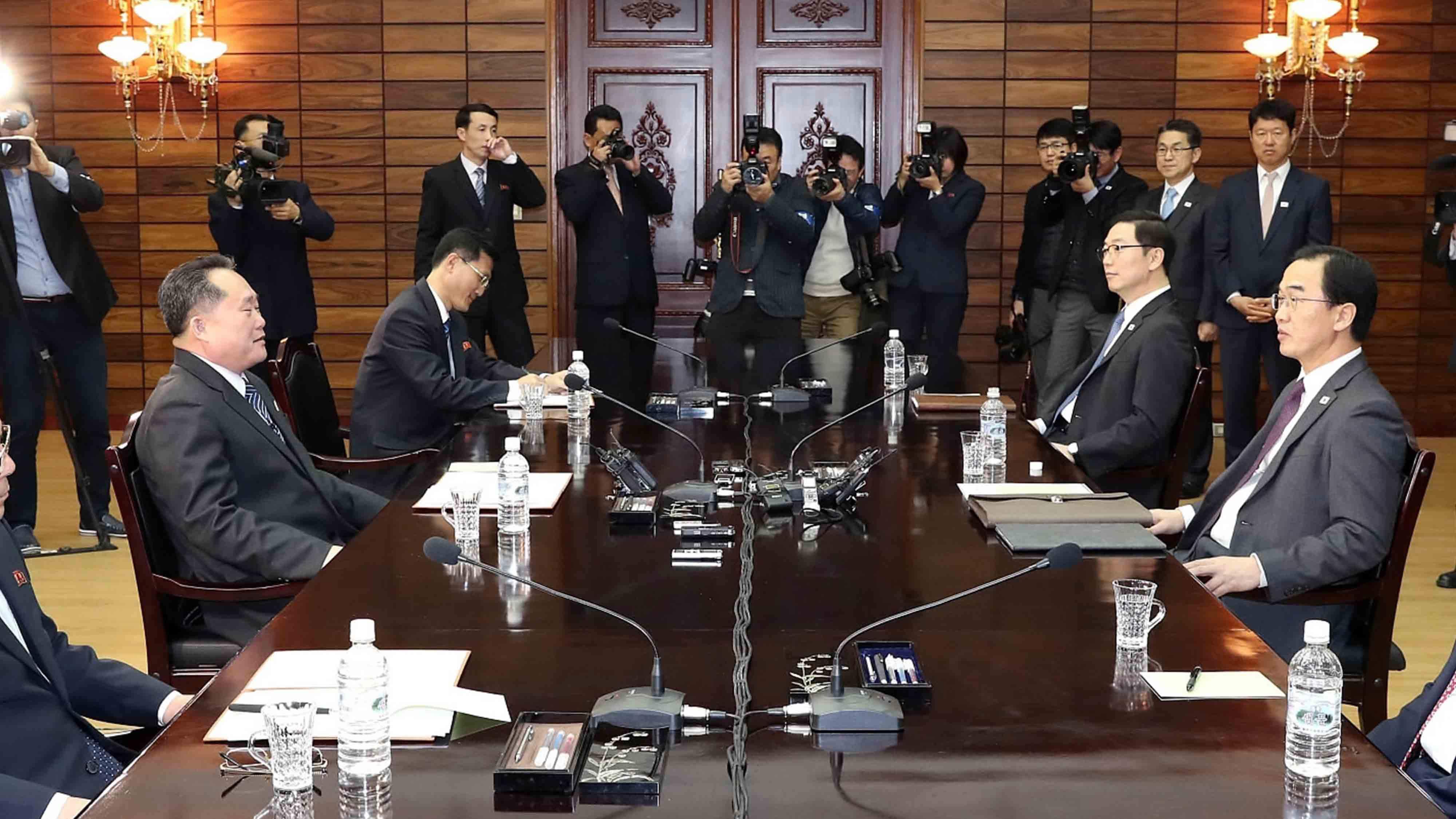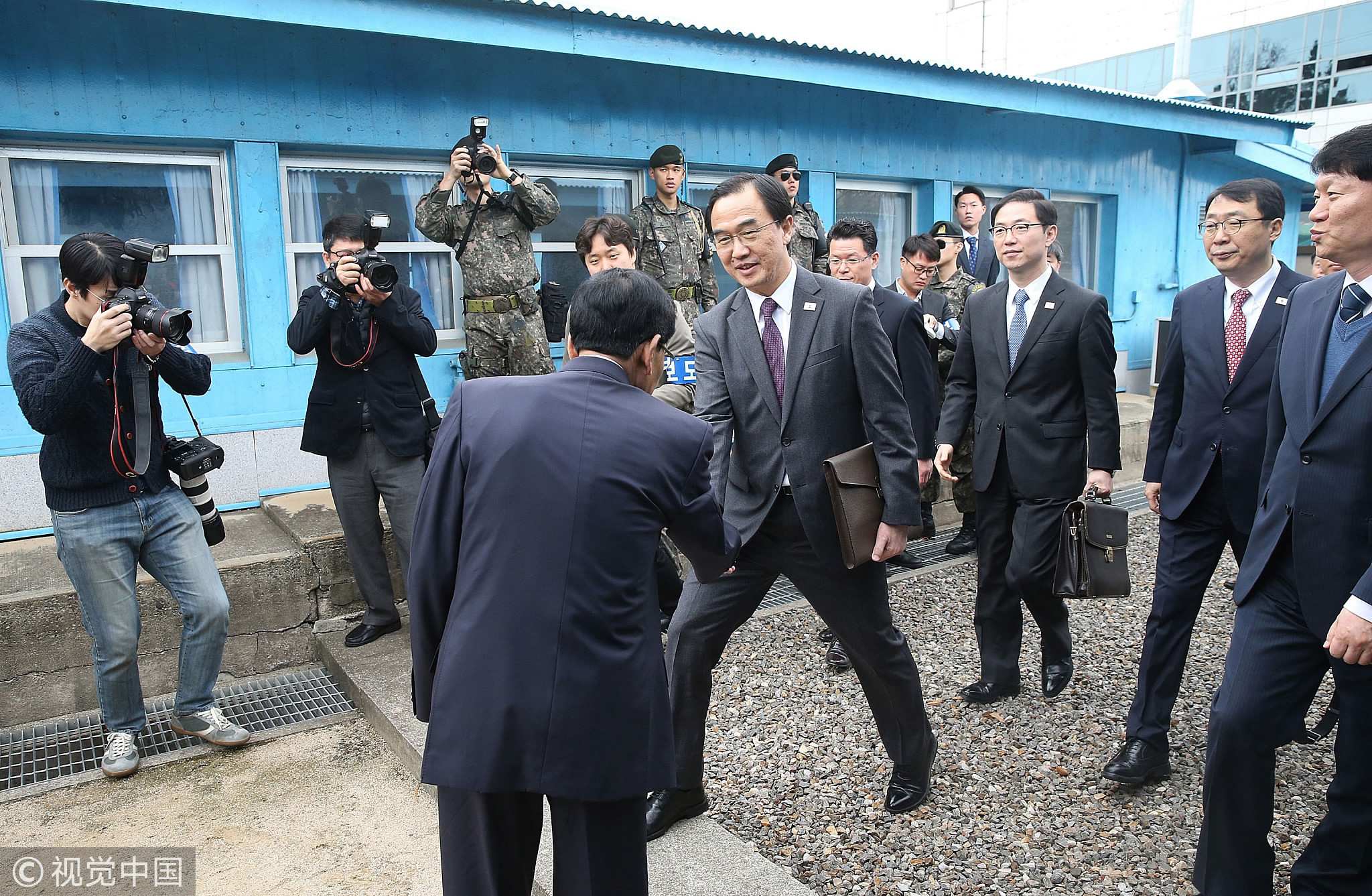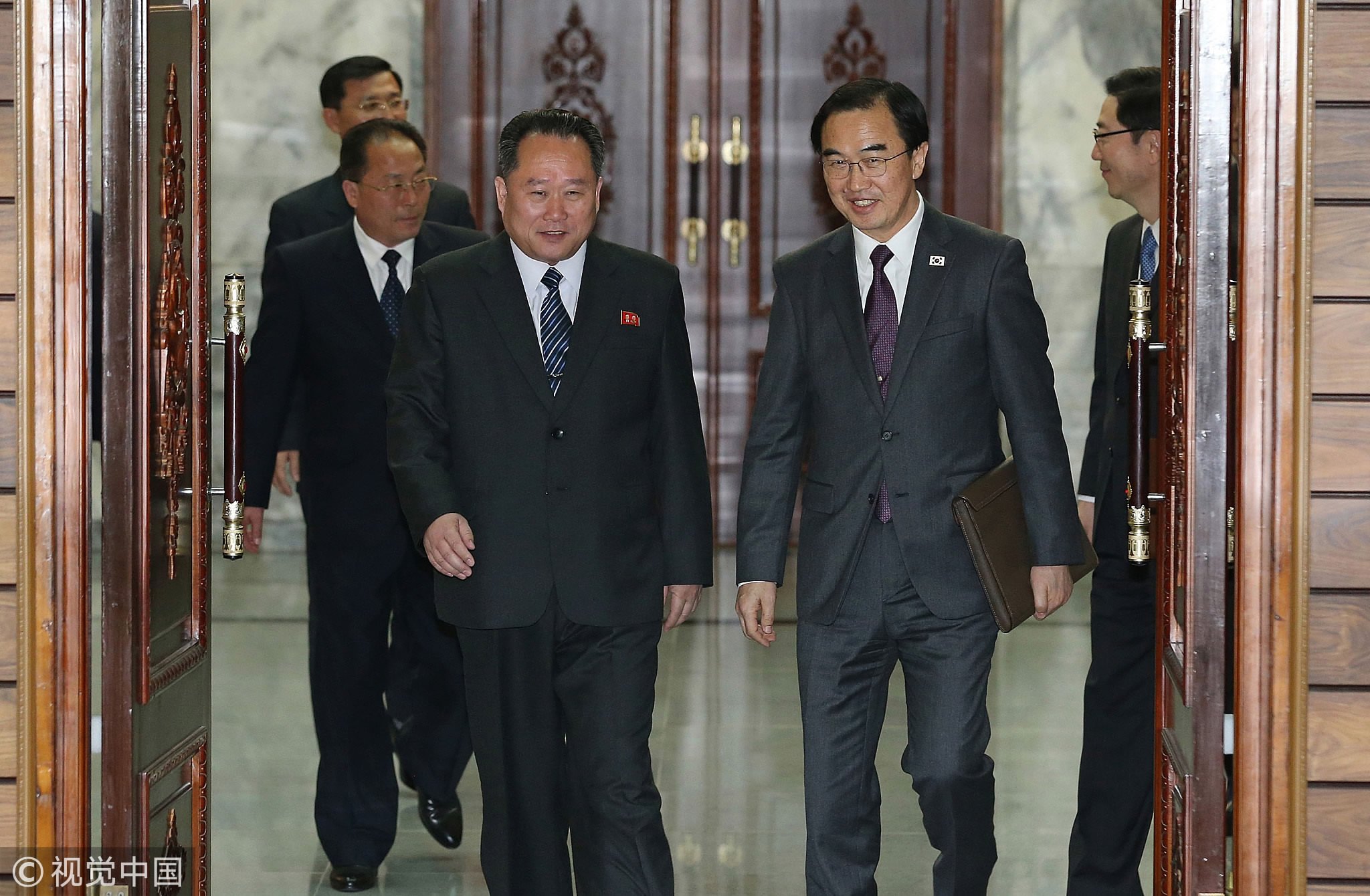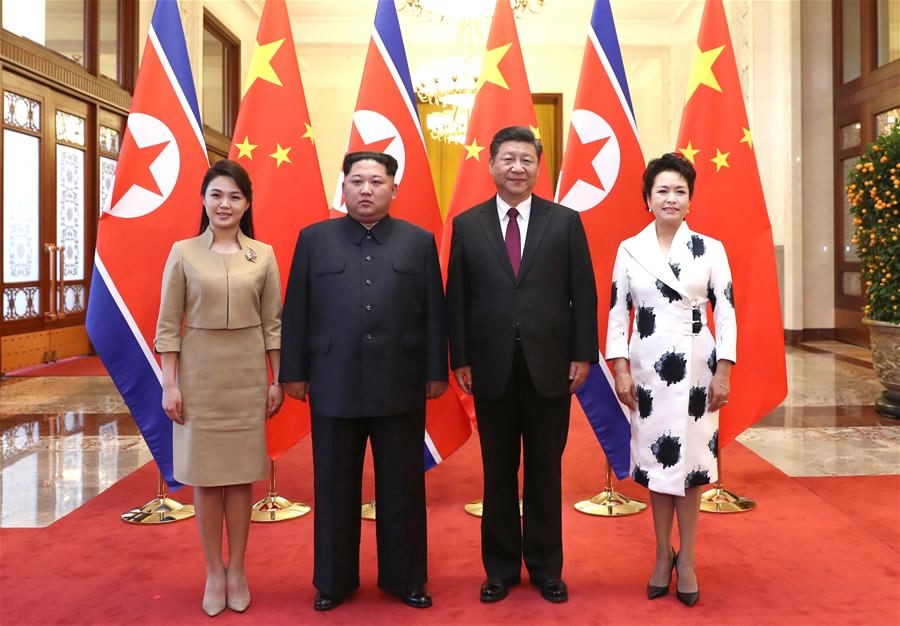
World
13:52, 29-Mar-2018
Denuclearizing DPRK: Kim-Moon summit set for April 27
By Sim Sim Wissgott

A highly-awaited meeting between Democratic People’s Republic of Korea (DPRK) leader Kim Jong Un and Republic of Korea (ROK) President Moon Jae-in will take place on April 27, the two countries agreed on Thursday.
At high-level talks to prepare for this third inter-Korean summit, the two sides also confirmed it would take place in the Joint Security Area near the Demilitarized Zone (DMZ).
"According to the will of both leaders, the South and the North agreed to hold the '2018 South-North summit' on April 27 at the South's Peace House in Panmunjom," said a joint press statement, read out in turn by both delegations' leaders.

ROK Unification Minister Cho Myoung-gyon (C) crosses the border line to attend a high-level talks with a DPRK delegation on March 29, 2018 in Panmunjom. /VCG Photo
ROK Unification Minister Cho Myoung-gyon (C) crosses the border line to attend a high-level talks with a DPRK delegation on March 29, 2018 in Panmunjom. /VCG Photo
The agenda for the meeting, the first between leaders of the two countries in 11 years, has yet to be set, but ROK officials said denuclearization on the Korean Peninsula and improving bilateral relations would feature highly.
ROK delegation leader Cho Myoung-gyon also told reporters the two sides agreed Kim and Moon should be able to hold "frank discussions on all matters."
Read more: A history of inter-Korean summits
Another working-level meeting has now been scheduled for April 4 to iron out further details ahead of the summit, including protocol, security and press communications.
"We still have a fair number of issues to resolve on a working level for preparations over the next month," said Ri Son Gwon, chairman of the DPRK's committee for the peaceful reunification of the country.
"But if the two sides deeply understand the historic significance and meaning of this summit and give their all, we will be able to solve all problems swiftly and amicably," he added.

ROK Unification Minister Cho Myoung-gyon (R) walks with DPRK delegation head Ri Son Gwon (L) before their meeting on March 29, 2018 in Panmunjom. /VCG Photo
ROK Unification Minister Cho Myoung-gyon (R) walks with DPRK delegation head Ri Son Gwon (L) before their meeting on March 29, 2018 in Panmunjom. /VCG Photo
The summit with Moon will be the third between Seoul and Pyongyang, after 2000 and 2007. Technically, the two countries are still at war as their 1950-53 conflict ended not with a peace treaty but a ceasefire.
China, which welcomed Kim on his first known trip abroad as DPRK leader earlier this week, greeted the news on Thursday.
China was glad to see the DPRK and the ROK engage in dialogue “as this serves the common interests of both sides and is conducive to the further amelioration of the situation on the peninsula and promoting regional peace and stability,” Foreign Ministry spokesman Lu Kang told reporters in Beijing.
"We hope that the momentum of dialogue can be sustained and the peaceful situation maintained," he added, noting "positive changes" on the Korean Peninsula have already emerged this year.
The inter-Korean summit, which will see a DPRK leader travel south for the first time since the end of the Korean War, comes amid a flurry of diplomatic efforts by Pyongyang over the past few months, starting at the Winter Olympics in PyeongChang.

DPRK leader Kim Jong Un (2nd L) and his wife Ri Sol Ju (1st L) pose with Chinese President Xi Jinping (2nd R) and his wife Peng Liyuan (1st R) at the Great Hall of the People in Beijing during their visit to China on March 25-28, 2018. /Xinhua Photo
DPRK leader Kim Jong Un (2nd L) and his wife Ri Sol Ju (1st L) pose with Chinese President Xi Jinping (2nd R) and his wife Peng Liyuan (1st R) at the Great Hall of the People in Beijing during their visit to China on March 25-28, 2018. /Xinhua Photo
Earlier this week, it was confirmed that Kim had traveled to Beijing to meet with Chinese President Xi Jinping, his first known meeting with a foreign leader.
After Moon, Kim is set to meet with US President Donald Trump in May, although details as to when and where exactly such a meeting would be held has yet to be decided.
These diplomatic overtures contrast with Pyongyang’s more aggressive stance last year when it made a series of missile and nuclear tests that prompted international condemnation.
During his visit to Beijing this week however, Kim insisted he was "committed to denuclearization" on the Korean Peninsula, according to comments reported by Xinhua news agency.
The new developments on the peninsula were also greeted by United Nations Secretary-General Antonio Guterres on Thursday.
"I think there is here an opportunity for a peaceful solution to something that a few months ago was haunting us as the biggest danger we were facing," he told reporters.
(With input from agencies)

SITEMAP
Copyright © 2018 CGTN. Beijing ICP prepared NO.16065310-3
Copyright © 2018 CGTN. Beijing ICP prepared NO.16065310-3